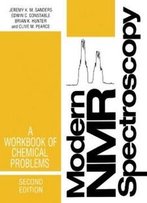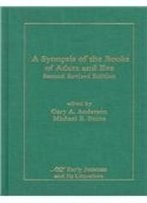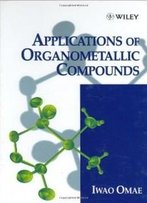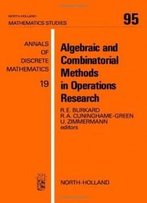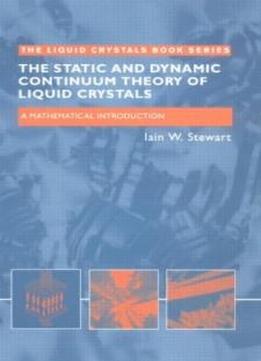
The Static And Dynamic Continuum Theory Of Liquid Crystals: A Mathematical Introduction (liquid Crystals Book Series)
by Iain W. Stewart /
2004 / English / DjVu
3.3 MB Download
Given the widespread interest in macroscopic phenomena in liquid
crystals, stemming from their applications in displays and devices.
The need has arisen for a rigorous yet accessible text suitable for
graduate students, whatever their scientific background. This book
satisfies that need.
Given the widespread interest in macroscopic phenomena in liquid
crystals, stemming from their applications in displays and devices.
The need has arisen for a rigorous yet accessible text suitable for
graduate students, whatever their scientific background. This book
satisfies that need.
The approach taken in this text, is to introduce the basic
continuum theory for nematic liquid crystals in equilibria, then it
proceeds to simple application of this theory- in particular, there
is a discussion of electrical and magnetic field effects which give
rise to Freedericksz transitions, which are important in devices.
This is followed by an account of dynamic theory and elementary
viscometry of nemantics Discussions of backflow and flow-induced
instabilities are also included. Smetic theory is also briefly
introduced and summarised with some examples of equilibrium
solutions as well as those with dynamic effects. A number of
mathematical techniques, such as Cartesian tensors and some
variational calculus, are presented in the appendices.
The approach taken in this text, is to introduce the basic
continuum theory for nematic liquid crystals in equilibria, then it
proceeds to simple application of this theory- in particular, there
is a discussion of electrical and magnetic field effects which give
rise to Freedericksz transitions, which are important in devices.
This is followed by an account of dynamic theory and elementary
viscometry of nemantics Discussions of backflow and flow-induced
instabilities are also included. Smetic theory is also briefly
introduced and summarised with some examples of equilibrium
solutions as well as those with dynamic effects. A number of
mathematical techniques, such as Cartesian tensors and some
variational calculus, are presented in the appendices.
